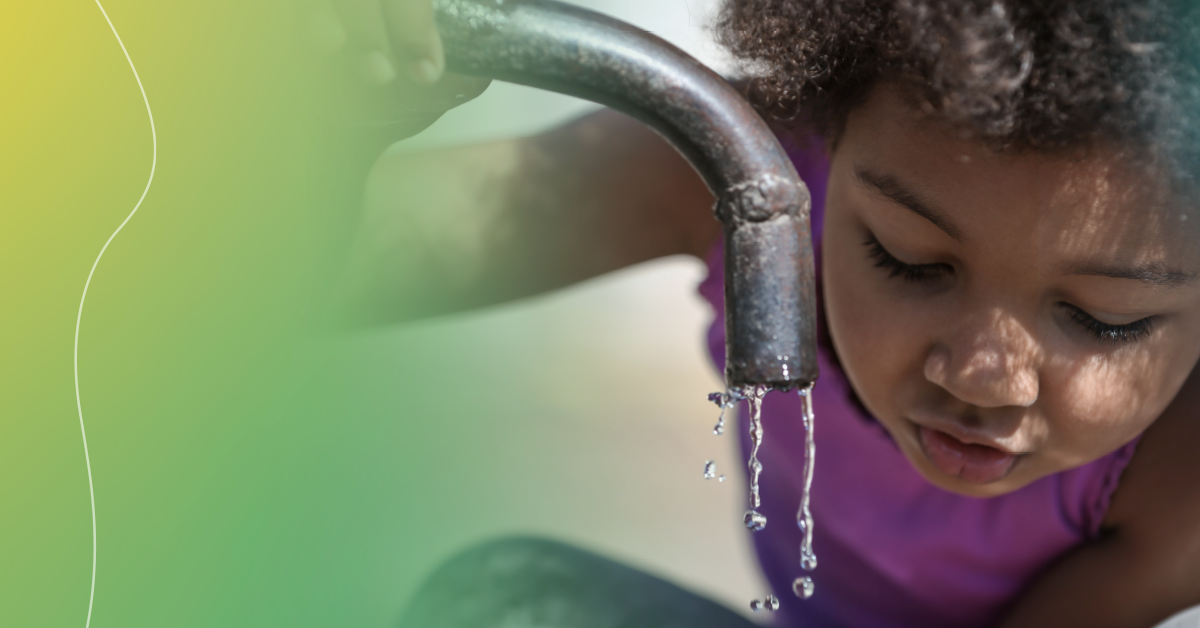Safe water and sanitation are essential for sustainable development, yet over 2 billion people worldwide still lack access to safely managed drinking water, and 3.5 billion lack safe sanitation. These gaps are not just inconvenient; they are dangerous. Poor water and sanitation infrastructure leads to high rates of waterborne illness, drains household time and income, and exposes people—especially women and girls—to risk and indignity when collecting water or using public facilities. Recent estimates suggest that diarrheal diseases associated with inadequate water and sanitation services explain 5.3% of mortality for children under the age of five.
While these immediate harms are well documented, a growing body of research is now investigating whether early life access to clean water and sanitation also influences broader human development, including learning and cognition.
Water and Sanitation Access in Peru
Peru has made recent progress in expanding safe water and sanitation services. Still, about 40% of the population lacks access to safely managed drinking water and safe sanitation, with the most acute challenges in rural Andean and Amazonian regions, informal urban settlements, and among Indigenous communities. These infrastructure gaps contribute to high rates of diarrheal diseases and increase vulnerability to climate shocks such as drought and flooding.
Against this landscape, a recent study published in Environmental Research Letters investigates how improved drinking water and sanitation access during a child’s first two years of life relates to cognitive outcomes approximately 14 years later. The study focuses on Peru and three other low- and middle-income countries (Ethiopia, India and Vietnam) and uses improved water and sanitation definitions from the WHO/UNICEF Joint Monitoring Programme for Water Supply, Sanitation, and Hygiene.
Early Access to Improved Drinking Water is Linked to Better Test Scores in Adolescence
In Peru, adolescents who had access to improved drinking water through piped water, public standpipes or tubewells at their homes in their first two years of life scored about three percentage points higher on math and reading tests at age 15. These effects were especially strong for girls. Girls with early life access to improved sanitation at their homes—e.g., flush toilets and private pit latrines— also scored almost three percentage points higher on verbal tests, although the evidence linking early life sanitation access and cognition was more suggestive.
The differences found between girls and boys are intriguing. Such patterns often reflect differential health and nutritional investments for boys and girls, often favoring boys. Yet, these differential investments are not as well established in Peru, suggesting that more work is needed to examine the gender dynamics related to the impacts of exposure to environmental hazards.
There are several pathways that might explain the relationships between early life water and sanitation access and cognition in adolescence.
- Cumulative learning: Children in households with improved water and sanitation may experience fewer absences from childcare, preschool and/or school due to illness and enjoy cleaner, more stimulating environments, leading to better learning over time.
- Time use and routines: Clean water at home means less time collecting water or managing illness. This frees up time and energy for adult-child play activities during early childhood and education later both of which are key for skills development.
- Physical health and nutrition: Improved water and sanitation support healthy growth, reduces disease, and improves nutrition, all of which are linked to better cognitive outcomes.
Implications for Policy in Peru
The study’s findings suggest that closing gaps in water and sanitation infrastructure is not only about promoting sustainable development, but also about building human capital.
These findings suggest several key opportunities for water and sanitation policy in Peru:
- Target early-life Water, Sanitation and Hygiene (WASH) interventions: Investments in piped water expansion, provision of clean drinking water, and private household latrines should focus on reaching children in their first two years of life, when brain development is most rapid and sensitive to environmental conditions.
- Track long-term impacts: Cognitive and educational outcomes should be included in the evaluation of WASH projects, alongside health and infrastructure metrics.
Too often, clean water and sanitation are seen as ends in themselves. But this study shows they are also powerful tools for human development. For Peru, investing in early-life improved water and sanitation access can help build the human capital needed for a more equitable and prosperous future.


Leave a Reply